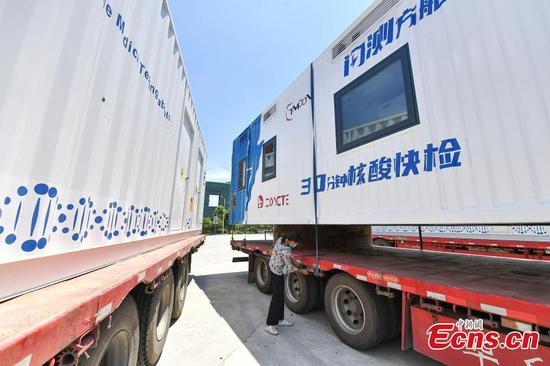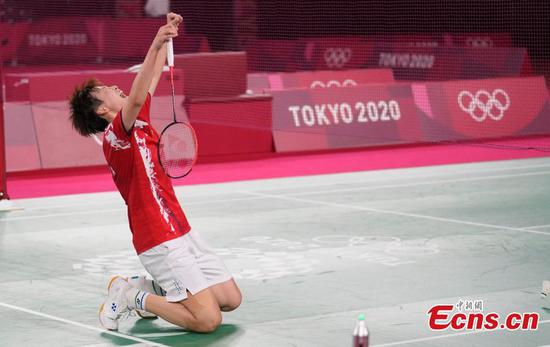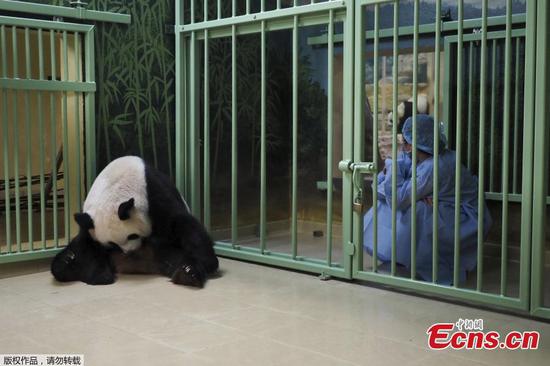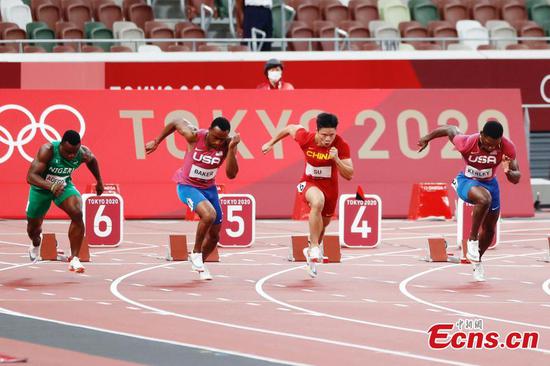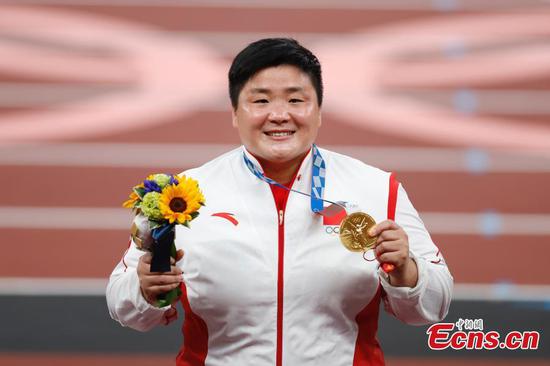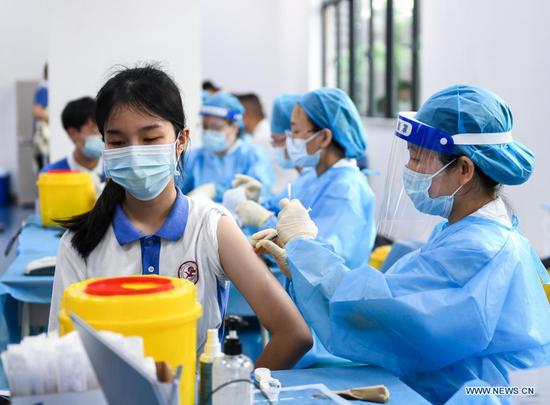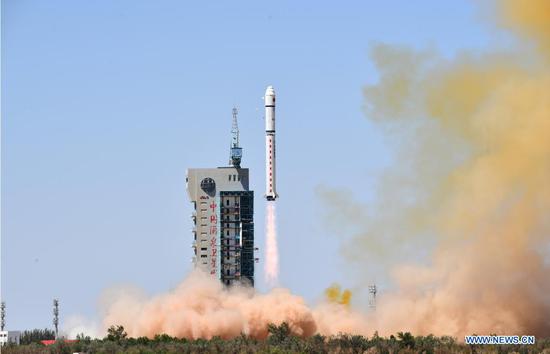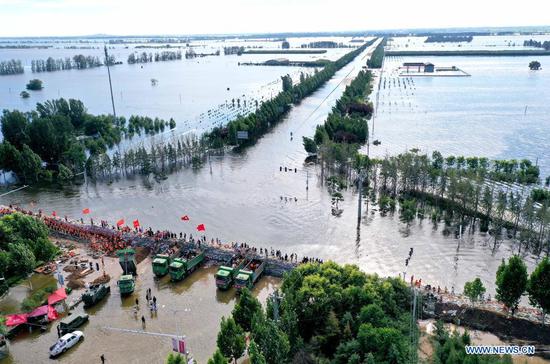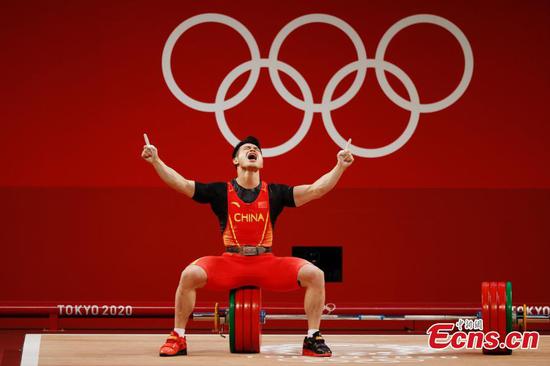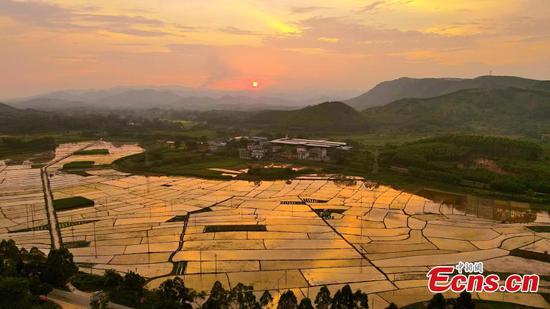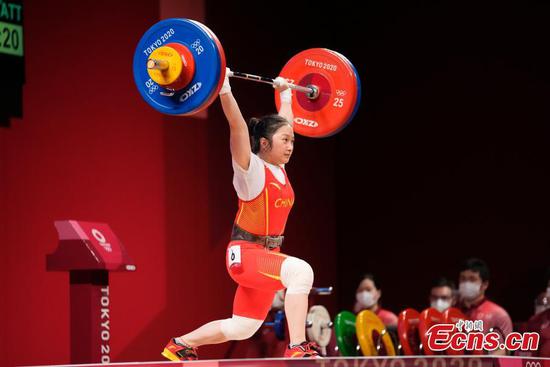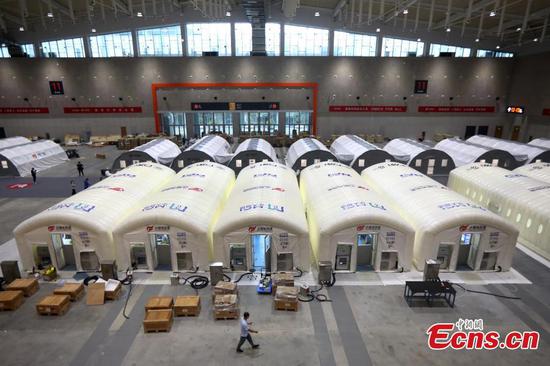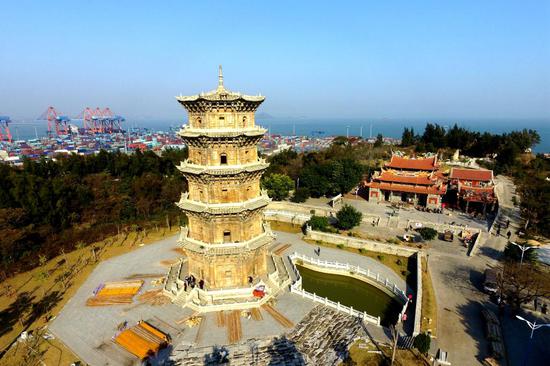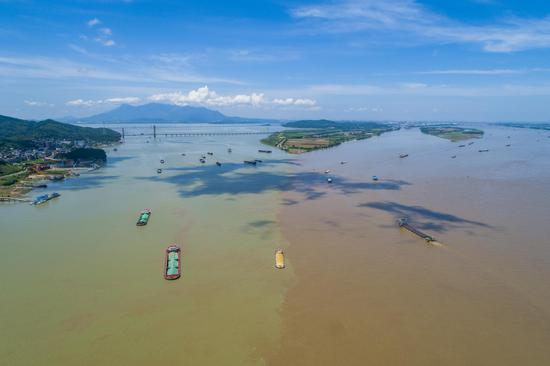
An aerial view of a wind farm in Liuzhou, Guangxi Zhuang autonomous region. (Photo by Tan Kaixing/For China Daily)
China is expected to take a nationally coordinated and orderly approach to achieve its carbon peaking and neutrality goals, and resist taking short-term and hasty measures to cut carbon emissions, analysts and business leaders said on Monday.
They also said the nation is well poised to deliver on its commitment to peak carbon emissions by 2030 and achieve carbon neutrality by 2060, respectively, while securing efficient energy supply and desirable economic growth.
China has been warding off reckless measures to reduce carbon emissions, besides strengthening steps to ensure efforts to cut emissions are consistent.
Their comments were in response to Friday's events when top policymakers acknowledged at a key meeting in Beijing that China will achieve its carbon emissions reduction goals in a coordinated and orderly manner.
The country's top leadership decided that China will roll out an action plan as soon as possible for achieving carbon emissions peaking by 2030, and will coordinate national efforts on carbon emission reduction, according to a statement released after the meeting of the Political Bureau of the Communist Party of China Central Committee.
The country will also ease off aggressive measures, and strongly prohibit projects with high energy consumption and carbon emissions, the statement said.
The meeting also asked the country to be prepared for the power demand peak in the summer.
"There is a tendency among some people to rush off on plans and campaigns to reduce carbon emissions thoughtlessly, although such a tendency is still quite weak," said Lin Boqiang, head of the China Institute for Studies in Energy Policy at Xiamen University.
"The top leadership has seen this and made such a warning. The meeting also made it clear that China will forge a stronger energy supply system, which is a priority for reduction of large-scale carbon emissions."
As China pursues high-quality development, it is crucial to secure energy supply and electricity stability, he said, adding new energy development, electricity market reform and the establishment of the carbon emissions trading system are among the measures to forge a stronger energy supply basis.
According to Wei Hanyang, a power market analyst at research firm BloombergNEF, the statement is in line with the backdrop of tight electricity supply during this year's summer season (June to August).
"Many central and coastal regions have experienced power crunch to different extents but expanding or building new coal power may risk the national carbon targets," he said.
"China's top authority has made clear the work (to be done) on climate change and set the tone for carbon reduction, including decarbonizing China, which cannot be a short-term or campaign-like action but has to be one that requires long-term commitments and proper planning."
One-off efforts to shut power plants and factories can mitigate carbon emissions this year while also hurting the local economy and sustainability. At the same time, the central government reiterated that highly polluting and emission-intensive projects must shut, Wei said.
Luo Yu, chairman of Abiochem Biotechnology Co Ltd, said traditional industries like chemicals and medical industries mostly rely on materials like crude oil, and end up emitting a huge amount of carbon dioxide. Such industries face a serious challenge as the nation pursues carbon neutrality goals. And synthetic biotechnology, which could play a key role in the global green manufacturing, provides substantial opportunities to companies like Abiochem.
Qian Jing, vice-president of solar module maker JinkoSolar, said while the carbon neutrality goal would bring many opportunities for the new energy sector, only a balanced policy that takes into consideration the sustainability and feasibility, would bring balance and lead to a long-term and healthy development of the industry.









